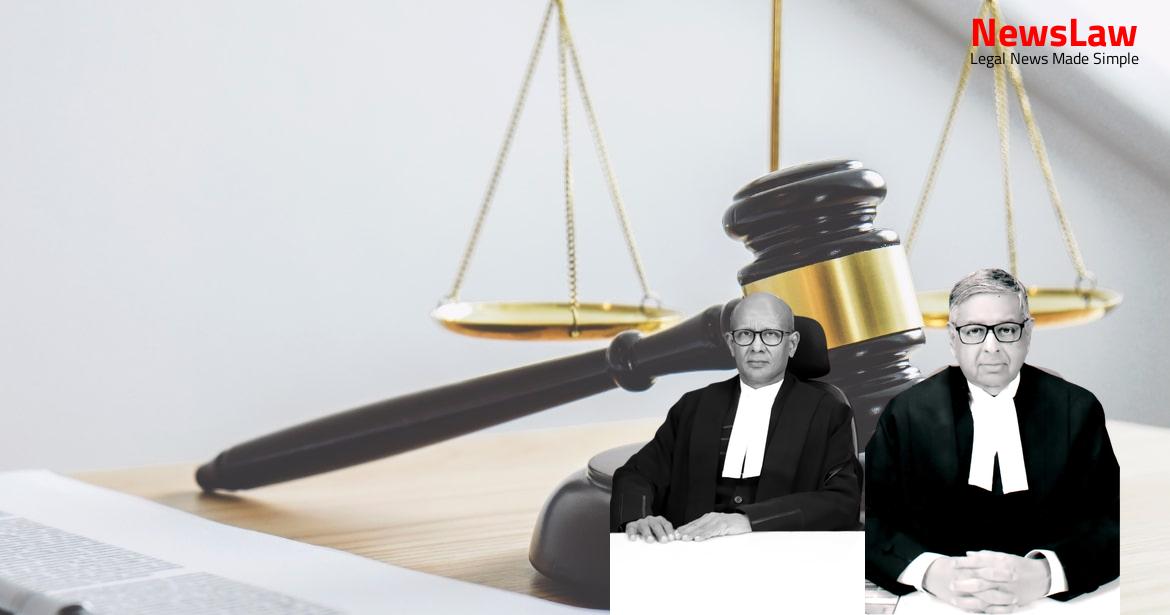A significant legal battle was resolved by the Supreme Court regarding a property ownership dispute settlement. The case involved a tenant and a landlord, with the court delving into the interpretation of consent orders to determine the rightful owner of the property. The ruling has far-reaching implications and sets a precedent for similar cases in the future.
Facts
- The tenant and the landlord appeared before the court on 05.09.1979 and accepted a settlement.
- The tenant deposited Rs.12,500/- on 06.09.1979 as per the consent order.
- The consent order led to a civil dispute between the parties.
- The building on the tenanted premises, alleged to be in a dilapidated condition initially, collapsed after the consent order.
- The court held that the order of the Rent Controller dated 28.08.1989 was not sustainable in law.
- In the Second Appeal before the High Court, the judgment of the court of first instance was reversed.
- The suit was decreed in favor of the tenant, holding that under the consent order, the tenant had become the owner of the suit premises.
- As the tenant had become the owner and was subsequently dispossessed by the landlord, he was entitled to a decree of possession.
Also Read: State v. John Doe: Upholding Fair Trial Rights and Procedural Safeguards
Arguments
- The moot question to be considered is whether the tenant can claim ownership of the property based on a consent order from 1979.
- The tenant claims ownership after depositing Rs. 12,500 as per the order under Section 14 of the Act.
- The argument revolves around the interpretation of the consent order and its implications on property ownership.
- Both the appellant-landlord’s counsel and the respondent-tenant’s counsel presented their arguments on this issue.
Also Read: NIA vs. Owais Amin: Supreme Court’s Interpretation of CrPC, 1989 and 1973
Analysis
- The statements and consent order clearly indicate that the tenant would become the owner of the property only if the stipulated amount was deposited within the agreed time frame.
- There is no documentation supporting the transfer of property ownership from the landlord to the tenant as per the statements and consent order.
- The settlement and consent order focused on the dismissal or allowance of the landlord’s eviction application based on the deposit or non-deposit of the specified amount, not on transferring property ownership.
- The Rent Controller’s recording of the compromise did not mention any sale consideration or transfer of property ownership.
- The tenant accepted the settlement based on the condition that failing to deposit the amount would lead to vacating the premises, not becoming the owner.
- The plain reading of the statements does not support the idea of property transfer based on the deposit amount.
- In a proceeding where the Rent Controller has the options of ordering eviction or dismissing the application for eviction.
- The High Court erred in interpreting the consent order and reversing the judgments of the lower courts that dismissed the tenant’s suit.
Also Read: Understanding the Supreme Court Judgment in Criminal Appeals: Yogesh @ Sonu Tharu vs. The State
Decision
- As per the settlement, if the respondent fails to deposit the amount by 15.12.1979, the application will be deemed allowed.
- If the respondent deposits the amount by the given date, the application will be deemed dismissed.
- The respondent is required to pay Rs.12,500 before 15.12.1979 in exchange for the value of the disputed Godown and house.
- The High Court’s judgment dated 20.04.2011 is set aside, and the appeal is allowed with costs.
- Failure to deposit Rs.12,500 by 15.12.1979 will signify settlement with the appellant.
- The payment must be made by depositing the amount in court in the appellant’s name.
Case Title: BEENA Vs. CHARAN DASS (D) THR LRS (2024 INSC 680)
Case Number: C.A. No.-003190-003190 – 2014



